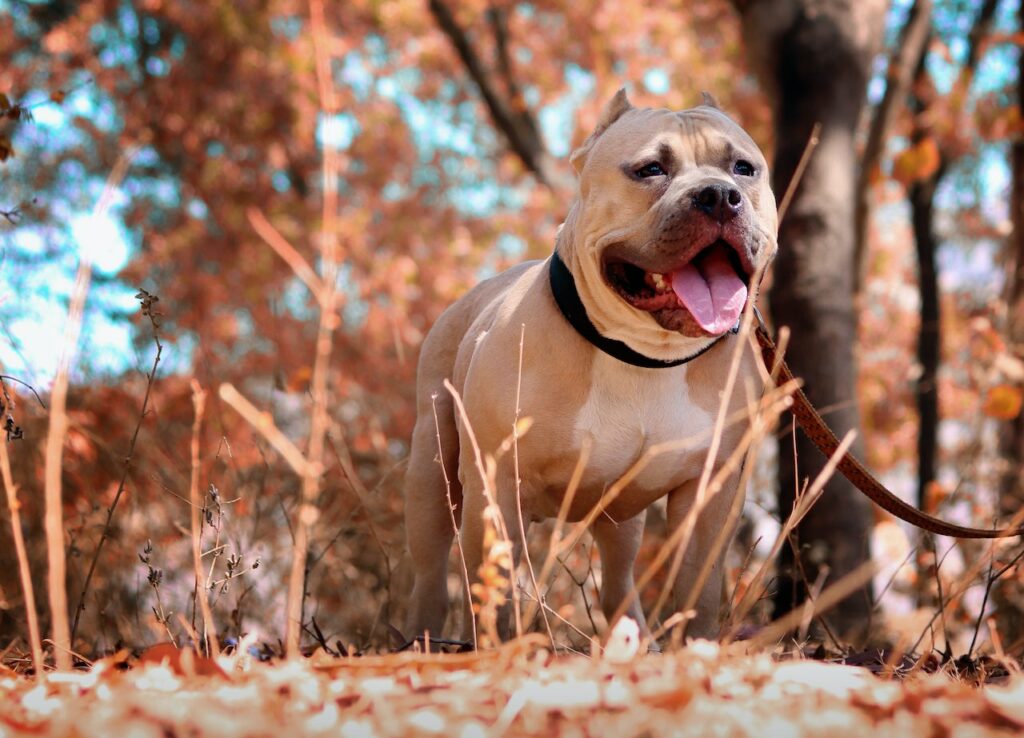Unlocking the Truth: Debunking Misconceptions Around Pit Bulls and Their Locking Jaws
Pit bulls have long been misunderstood and maligned, with myths about their aggressive behaviour and “locking jaws” contributing to an undeserved reputation of danger. But do pit bulls have locking jaws? In this article, we’ll explore the history of this breed, dispel these false notions and examine the scientific evidence that dispels them. We will also discuss the importance of responsible ownership in ensuring safety for both humans and animals and what steps can be taken to end these dangerous stereotypes about pit bulls. So if you’re interested in learning do pitbulls have locking jaws (or not), read on!
Do Pitbulls Have Locking Jaws?
Ask anyone in the United States if they know what a pit bull is, and most likely, they will tell you that it’s a type of aggressive dog. This popular misconception about pit bulls has been perpetuated by myths and rumours about their alleged “locking jaws” – the idea that once a pit bull bites down on something, it won’t let go. Although experts and animal behaviourists have widely debunked this notion, many still believe it is true. In this article, we will explore whether pit bulls have locking jaws and discuss why this rumour persists despite evidence to the contrary.
The Myth of Locking Jaws
The concept of locking jaws can be traced back to an 1889 study on dog bite force which found that mastiffs had more powerful bites than other breeds. This study was later misinterpreted as meaning that all mastiff-type dogs (including pit bulls) had stronger biting capabilities than other breeds due to their supposed “locking jaws”. The truth is, however, that no breed of dog has locking jaws at all – it’s simply a myth created by those who wish to portray pit bulls as particularly dangerous animals.
Debunking the Myth: What Do Experts Say?
For starters, experts point out that no scientific evidence supports the claim that any breed of dog has locking jaws. Studies conducted by the American Veterinary Medical Association (AVMA) have repeatedly shown that dogs do not possess any unique mechanism which allows them to lock their jaw muscles into place once they bite down on something – this includes both domesticated canines like pit bulls and wild species like wolves and coyotes.
Additionally, research conducted on domestic canine skull structures shows no structural differences between breeds which could account for any type of “locking jaw” mechanism. Scientists have found that all domestic dogs share very similar skull structures – regardless of size or breed – and none possess any sort of specialized anatomy which would enable them to latch onto objects with greater strength or intensity than another type of canine.
What Do Pit Bulls Actually Have?
It’s important to note that although pit bulls don’t have “locking jaws,” they have a few traits that make them especially well-suited for certain activities such as agility competitions or weight-pulling contests. For instance, these dogs tend to possess strong neck muscles thanks to their broad heads and short snouts; this enables them to hold onto objects more securely than other breeds might be able to do with less effort. Additionally, these pets also tend to have slightly longer teeth than other canines – which could give them an edge when it comes time to latch onto something (like a toy during a game of tug-of-war). Finally, some experts suggest that these dogs may also have higher pain thresholds than other breeds – allowing them to remain focused on tasks despite discomfort or injury in some cases.
Common Misconceptions About Pit Bulls & Aggression
Although the “locking jaw” myth has been dispelled numerous times by researchers over the years, many people still incorrectly believe that all pit bulls are naturally aggressive animals due simply because they are part of a particular breed group. However, animal behaviourists’ studies clearly show that there is no scientific evidence linking aggression with specific types of canine breeds – including pit bulls! Instead, what matters most is how an individual pet has been raised: things like proper socialization from an early age, positive reinforcement training methods and consistent exposure to humans are far more influential factors when it comes to making sure your pup remains friendly towards others!
Reasons Why Experts Believe Pit Bulls Don’t Have Locking Jaws:
- No scientific evidence exists linking locking jaws with any canine breed – including pits bulls
- Domestic dog skulls share similar structures regardless of the size/breed
- There is no specialized anatomy enabling one breed over another when it comes time to latch onto items
- The original study linking mastiffs with powerful bites was misinterpreted
- Aggression does not come from breed type but rather from how an individual pet has been raised
Conclusion
In conclusion, we now know there is absolutely no scientific basis for the long-standing rumour about pitbulls having locking jaws Instead, this common misconception appears rooted in fearmongering tactics used by those looking to portray these animals in a negative light – often without regard for facts or reality! Thankfully, we now know better; modern research clearly shows us there’s much more behind determining whether an individual pet will be aggressive towards humans or animals than its breed type alone!
At furrr.co.uk, we understand the importance of responsible pet ownership – including having insurance for your pup in case of any accidents or illnesses! Whether you own a pit bull or another type of canine companion, it’s always best to be prepared; get a quote today on our website and see how much peace of mind comes with knowing that you have financial protection in the event something unexpected happens to your furry friend. Get started now and give yourself the security of knowing that your pup is always taken care of!










